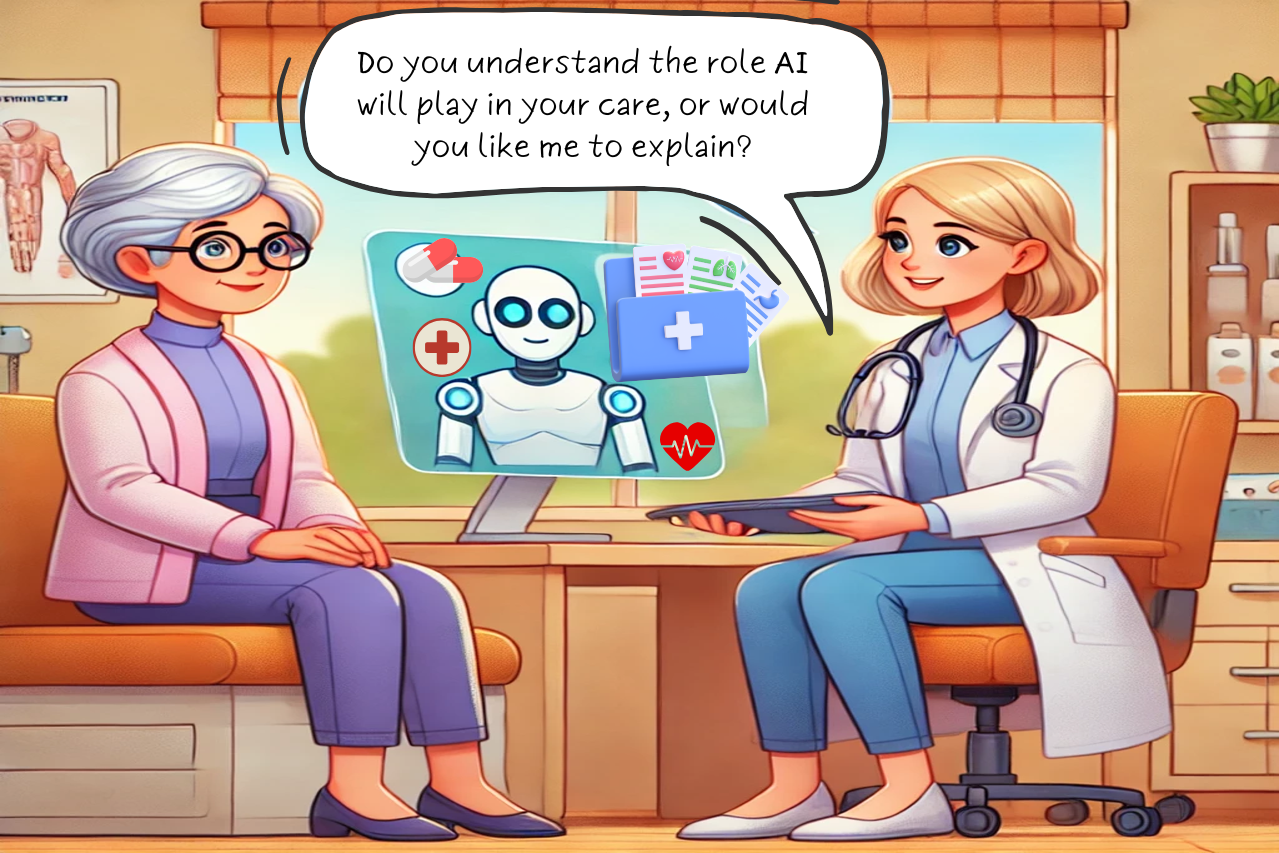Advancements in artificial intelligence (AI) hold immense potential to transform cancer screening, diagnosis, and treatment. From improving the accuracy of diagnostic tools to streamlining patient care pathways, AI applications are poised to enhance the overall effectiveness of cancer care. However, as we embrace these technological innovations, it is imperative to address the critical issue of bias—specifically, how racial and gender biases can impact healthcare outcomes.
Dr. Mona Flores, Global Head of Medical AI at NVIDIA, has spoken extensively about the dangers of using non-representative datasets to train AI models, especially in oncology. She has pointed out that AI systems developed primarily using data from Caucasian patients may not perform as well for minority populations, leading to diagnostic errors and inadequate treatment plans.
The Benefits of AI in Cancer Care
AI technologies are increasingly being used to analyze vast amounts of medical data, identify patterns, and provide insights that can aid in cancer detection and treatment. Here are some key ways in which AI is making an impact in the field:
- Enhanced Diagnostic Accuracy: AI algorithms can analyze medical images, such as mammograms and CT scans, with remarkable precision. Research has shown that AI can assist radiologists in identifying tumors that may have been overlooked, ultimately leading to earlier diagnoses and better prognoses.
- Predictive Analytics: By utilizing patient data, AI can help predict an individual’s risk of developing cancer based on genetic, environmental, and lifestyle factors. This allows for more targeted screening and preventative measures, enabling healthcare providers to focus resources where they are most needed.
- Personalized Treatment Plans: AI can assist in tailoring treatment plans to individual patients by analyzing their unique genetic profiles and responses to previous therapies. This personalized approach enhances treatment efficacy and reduces the likelihood of adverse reactions.
- Operational Efficiency: AI can streamline administrative processes within healthcare systems, from appointment scheduling to patient follow-ups. This increased efficiency allows healthcare providers to focus more on direct patient care.
The Challenge of Bias in AI
Despite the potential benefits of AI, there is a pressing need to address the issue of bias, which can undermine the very advancements we hope to achieve. Bias in AI systems can arise from various sources, including:
- Training Data: AI algorithms learn from historical data, which may reflect existing disparities in healthcare access and outcomes. If the data used to train AI systems is not representative of diverse populations, the algorithms may inadvertently perpetuate these inequalities.
- Algorithmic Design: The decisions made during the development of AI algorithms can also introduce bias. Factors such as the selection of features to include in the model and the thresholds set for classifications can impact the accuracy and fairness of predictions.
- Interpretation and Implementation: Even well-designed AI systems can be misinterpreted or misapplied in clinical settings. Without proper training and understanding of the AI’s capabilities and limitations, healthcare providers may unintentionally exacerbate biases.
Dr. Eric Topol, a prominent physician and AI researcher in the U.S., has advocated for more transparent AI development processes in healthcare. He calls for rigorous testing of AI models across diverse patient populations to ensure equitable outcomes in cancer treatment, ensuring that all patient populations, including underrepresented minorities, benefit from accurate diagnostics and personalized care. Without these changes, the potential of AI to reduce healthcare inequities will remain underutilized, perpetuating existing gaps in treatment and care quality.
Ensuring Equitable AI Applications
To harness the power of AI in cancer care while minimizing bias, several strategies can be employed:
- Diverse Training Data: Ensuring that AI systems are trained on diverse datasets is crucial. This means including data from various racial, ethnic, and gender groups to create algorithms that are more representative and equitable.
- Bias Audits: Regularly conducting audits of AI systems for bias is essential. These audits can identify potential disparities in performance across different demographics and prompt necessary adjustments to the algorithms.
- Interdisciplinary Collaboration: Involving a diverse team of researchers, clinicians, ethicists, and community representatives in the development of AI applications can help identify and mitigate bias from the outset.
- Education and Training: Healthcare providers must be trained to understand the capabilities and limitations of AI technologies. This education will empower them to use AI responsibly and ensure that patient care remains equitable.
- Patient Engagement: Actively involving patients in the design and implementation of AI applications can help ensure that their needs and concerns are addressed, leading to more acceptable and effective solutions.
The potential of AI to enhance cancer screening, diagnosis, and care is immense, but it comes with the responsibility to ensure that these technologies benefit all patients equally. By proactively addressing racial and gender biases in AI applications, we can advance healthcare equity and create a future where the benefits of AI are accessible to everyone.
Dr. Ziad Obermeyer, a researcher and physician at the University of California, Berkeley, has explored biases in AI models within healthcare, showing that these systems often perpetuate existing inequalities in care. His work highlights how AI algorithms can reinforce bias by relying on flawed data that mirrors historical inequities, especially in fields like oncology, where early and accurate diagnosis is critical.
As we move forward, collaboration among researchers, developers, healthcare providers, and patients will be crucial in building AI systems that not only improve cancer care but also promote fairness and inclusivity in the healthcare landscape.




